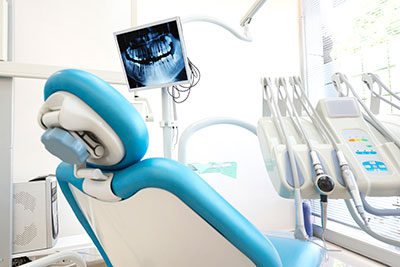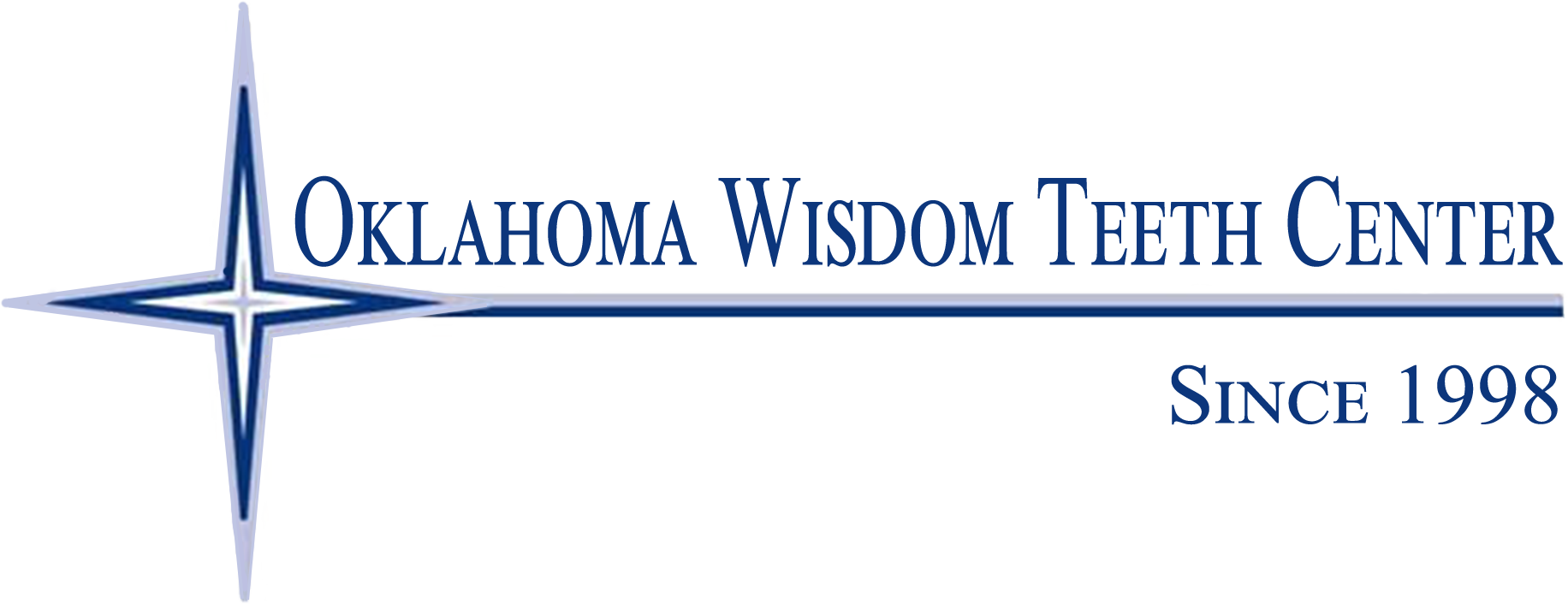Tulsa Denture Placement
After Removal of Multiple Teeth and Denture Delivery General Anesthesia/IV Sedation Patients
Patients who received a general anesthetic or an intravenous sedation should return home from the office immediately upon discharge. Lie down on your side with the head elevated until all the effects of the anesthetic have disappeared. You should not operate any mechanical equipment or drive a motor vehicle for at least 24 hours or longer after denture placement if you feel any residual effect from the anesthetic. Watch out for dizziness. Walk slowly and take your time. Sudden changes of position can cause nausea and/or lightheadedness and even fainting. Having someone escort you to the bathroom (and any other necessary activity requiring walking) is a good idea and often necessary. Call Oklahoma Wisdom Teeth Center for more information about Tulsa Denture Placement.

Do Not Remove Your Dentures(s)
It is very important that you do not attempt to remove your dentures before you see your family dentist for your initial denture adjustment which is generally at 24 hours. Your dentures are seated during your surgery, and the swelling of your gums may make it impossible for your dentist to adjust and replace your denture at the 24-hour appointment if you remove it ahead of that time. There are only two reasons to remove your denture before you see your family dentist the next day, and both are emergency situations. One is uncontrolled bleeding after all other measures have failed, and the other is uncontrolled pain after all other measures have failed. These two situations are exceedingly rare, and thus you should receive direction from our office or the doctor himself before removing your denture.
More Information
It is our desire that your recovery be as smooth and pleasant as possible. If you have any questions about your progress after a Tulsa denture placement, please call during office hours, Monday through Thursday 8:00 to 5:00, Friday 8:00 to 4:00 at (918) 392-9970. In case of an after hour emergency, you may call (918) 740-3922.
Your Title Goes Here
Your content goes here. Edit or remove this text inline or in the module Content settings. You can also style every aspect of this content in the module Design settings and even apply custom CSS to this text in the module Advanced settings.
Bleeding
Your new denture(s) that has been placed should act like a band-aid of sorts over the extractions sites. Therefore firm biting pressure on the gauze that has been placed or even just biting on the dentures themselves is usually enough to establish a nice blood clot within the extraction sites. Please note that oozing of blood from beneath the denture and around the edges is normal. It is normal to see red in your saliva and even have some red on your pillowcase in the morning for up to three days. It is not normal for your mouth to fill up with blood in a few seconds or even minutes, and if this occurs please call the office immediately (918) 392-9970. Firm biting pressure should continue for about 1 hour. During this time it is important that you do not attempt to talk or eat, as these actions can dislodge the denture and/or underlying clots. After the first hour, 20-minute sessions of continuous, sustained pressure followed by a few minutes of rest, are sometimes needed to help further establish the underlying blood clots. Remember some oozing is normal and thus it should not be attempted to completely eliminate all signs of blood.
Swelling And Bruising
Pain
Nausea
Antibiotics
Diet
Stitches
Sharp Edges
Itching
Mouth Rinses
Pain After The First Week
Pain during the first week is generally from the extractions and alveoloplasty (bone smoothing). Pain after the first week is generally due to “denture sore spots.” These are areas where the acrylic of the denture is rubbing too hard on your underlying gums. This is usually due to the fact that the swelling is going down and the areas are healing and changing shape. Therefore, pain after the first week usually means you need to see your general dentist for a quick adjustment or relief of the denture.
Pain after the first week that is associated with actual swelling of the face (one side actually LOOKS bigger, not just feels bigger), a bad taste or foul odor in the mouth, redness, drainage, or swelling at the extraction site; is more likely due to a post-operative infection and will require a post-operative visit with the doctor. Antibiotics may be all that is necessary, however surgical intervention may be required in some cases.
After your Tulsa denture placement, make sure you follow up with your dentist to prevent any infection or ongoing pain symptoms.
Your 24 Hour Follow Up Appointment
Most family dentists want to see their patients at 24 hours for the initial Tulsa denture placement. This can vary of course with individual dentists, as some even like to see the patient the very same day of surgery, and some at 48 or 72 hours. This should be determined before the day of surgery. Remember, it is important that you not remove your denture before this appointment. The schedule of future denture adjustments will be made by your family dentist.
Other Complications
• If numbness of the lip, chin, or tongue occurs there is no cause for alarm. This numbness is usually temporary in nature. You should be aware that if your lip or tongue is numb, you could bite it and not feel the sensation. So be careful. Call our office (918) 392-9970 if you have any questions about your Tulsa denture placement.
• Slight elevation of temperature immediately following surgery is not uncommon. If the temperature persists, notify the office. Tylenol or ibuprofen should be taken to reduce the fever (unless you have a medical condition which prohibits you from taking Tylenol or ibuprofen.
• You should be careful going from the lying down position to standing. You were not able to eat or drink prior to surgery. It was also difficult to take fluids immediately after surgery. Taking pain medications can make you dizzy. You could get light headed when you stand up suddenly. Before standing up, you should sit for one minute then get up.
• If the corners of your mouth are stretched, they may dry out and crack. Your lips should be kept moist with an ointment such as Vaseline.
• Sore throats and pain when swallowing are not uncommon. The muscles get swollen. The normal act of swallowing can then become painful. This will subside in 2–3 days.
What Constitutes An Emergency?
Uncontrolled bleeding (having your mouth fill up with blood in several seconds or minutes) despite using the methods mentioned above, is an emergency that cannot wait until the next day. Please call the after-hours emergency number (918) 740-3922.
Other questions and curiosities about Tulsa denture placement can usually be answered in detail by phone on the next business day.
Get In Touch With Our Tulsa Oral Surgeon!
We are looking forward to meeting you.
Fax: (918) 491-6999
Address: 7316 E 91st St, Tulsa, OK 74133
